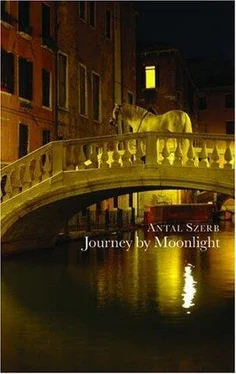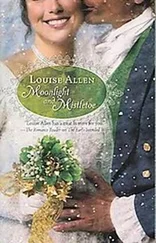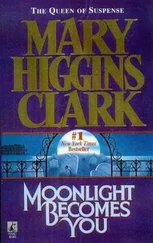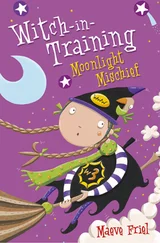“Excuse me … Alcohol is another thing Europeans take to excess. What a horrible feeling it is when you’ve too much wine in your stomach and know that sooner or later you’re going to be sick. The effect of the wine gets steadily stronger until you suddenly collapse. It doesn’t produce the steady, controlled ecstasy that opium does. There is no greater pleasure on earth … Really, what do people in Europe know about it? You should consider the circumstances before you meddle in the affairs of other countries.”
“This is why we want to make this educational propaganda film with you,” said Szepetneki, turning to Sári.
“What? A propaganda film about opium smoking?” said Erzsi. Up to this point she had found the Persian’s point of view somewhat attractive. Now she was horrified.
“Not to promote opium smoking, but the free movement of the product and human rights in general. The film is dedicated as a great individualist statement against every form of oppression.”
“What’s the story-line?” asked Erzsi.
“The opening shots,” replied Szepetneki, “take you into a family living peacefully on a simple, kind-hearted, traditional opium farm in Persia. For reasons of social rank they can only marry their daughter (the heroine) to the young man she loves if they can find a buyer for the year’s harvest. Whereupon the bad guy, who is also in love with the girl, but is a wicked communist prepared to do anything, betrays the father to the authorities and, in a night ambush, seizes the entire stock. This bit will be very exciting, with car chases and sirens blowing. But later the girl’s innocence and nobility of soul so impresses the hard-nosed general that he returns the seized opium, which sets off merrily for China, in tinkling wagons. That would be the outline of the story … ”
Erzsi had no idea whether Szepetneki was joking or not. The Persian listened solemnly, with an air of naïve pride. Doubtless the story was his idea.
After the meal they went to a fashionable dancing-place. Here they were joined by some other acquaintances. They sat round a large table and made conversation, in so far as the general din allowed. Erzsi kept her distance from the Persian. János Szepetneki asked her to join him, and they began to dance.
“How do you like him?” he asked as they stepped out. “A very interesting character, don’t you agree? A complete romantic.”
“Do you know, every time I look at him I think of the words of an old English nonsense poem,” said Erzsi, visited suddenly by a flash of her former intellectuality: “ Tiger, Tiger, burning bright / In the forests of the night … ”
Szepetneki looked at her amazed, and Erzsi felt embarrassed.
“A tiger perhaps,” said Szepetneki, “but he’s come a terribly hard road. And yet he’s so naïve, so unsure and cautious in business matters. Even the film people can’t take him in. But it isn’t for commercial reasons that he wants to make the film. It’s for the message. And the other main reason, as I see it, is so that he can make a harem out of the female extras. Now, when did you leave Italy?”
“So you recognised me?”
“Of course. Not just now, a few days ago, in the street, when you were with Sári. I’ve a pretty sharp eye. I actually arranged this evening so that I could talk to you … Tell me, where did you leave my good friend Mihály?”
“Your good friend is probably still in Italy. We don’t write.”
“Sensational. You separated on your honeymoon?”
Erzsi nodded.
“Great. That’s really great. That’s Mihály’s style. The old boy hasn’t changed one little bit. All his life he’s always given up. No stamina for anything. For example, he was the best centre-half, not just in the school but, I dare say, of any school in the whole country. And then one fine day … ”
“How do you know that he left me and not the other way around?”
“Forgive me. I shouldn’t have asked. But of course. You left him. I get it. You couldn’t put up with someone like him. I can imagine how difficult it must have been living with such a cold fish … someone who never gets angry, who … ”
“Yes. He left me.”
“I see. My very first thought, by the way. In Ravenna, you remember. You know, I say this in all seriousness, Mihály isn’t cut out for a husband. He’s … how do I put this?… a seeker … All his life he’s been looking for something, something different. The sort of thing this Persian no doubt knows a lot more about than we do. Perhaps Mihály should be taking opium. Yes, that’s absolutely right — that’s what he should do. I must tell you quite frankly, I never understood that man.”
And he made a gesture of hopelessness.
But Erzsi sensed that this casual dismissal was simply a pose, and that Szepetneki was dying to know exactly what had passed between her and Mihály. He stuck very closely by her side.
They sat down together. Szepetneki was letting no-one near her. Sári was now receiving the attentions of a distinguished elderly Frenchman, and the Persian with the burning eyes was seated between two actress-types.
Erzsi was thinking: “It’s interesting how different, and contradictory, things appear from close up.” On her first visit to Paris she had been full of the superstitious prejudices acquired in her schooldays. She had thought of Paris as an evil metropolis full of perverts, and the Dôme and the Rotonde in Montparnasse, two harmless coffee-houses for painters and émigrés, had been for her the two gleaming fangs in the devil’s gullet. And now here she sat, among people who no doubt actually were evil and perverted, and it all seemed perfectly natural.
But she had little time for these reflections because she was listening intently to Szepetneki. He clearly hoped to learn something important about Mihály from her. He chatted happily away about their years together, though of course everything was slanted to fit his point of view, and he painted rather a different picture from Mihály’s. Only Tamás remained wonderful: princely, death-marked, a young man who was too good for this world. He had left it young before he had to compromise with it. According to Szepetneki, Tamás was so sensitive he couldn’t sleep if someone was moving about three rooms away and a strong smell would have completely finished him off. The only problem was, he was in love with his sister. They had become lovers, and, when Éva fell pregnant, Tamás killed himself from remorse. In fact, everyone was in love with Éva. Ervin had become a monk because of his hopeless passion for her. Mihály too was hopelessly in love with her. He followed her around like a puppy. It was comical. And how she treated him! She took all his money. And she stole his gold watch. Because of course it was Éva, not himself, who stole it, but he didn’t want to say that to Mihály out of delicacy. But she was in love with neither of them. Only with him, János Szepetneki.
“And what has happened to Éva since? Have you seen her?”
“Me? Of course! We still get on very well. She’s made a splendid career; not entirely without my help. She’s a very great lady.”
“How do you mean?”
“Well now, she always has the most aristocratic patrons possible — cheese barons, petroleum kings, actual heirs to thrones, not to mention the great writers and painters she takes on for the publicity.”
“And what of her at present?”
“Right now she’s in Italy. If she can, she always goes to Italy. It’s her passion. And she collects antiques, as her father did.”
“Why didn’t you tell Mihály that she was in Italy? And while we’re on the subject, how did you get to Ravenna that time?”
“Me? I was passing through Budapest and I heard there that Mihály was married and on his honeymoon in Venice. I couldn’t resist taking the opportunity to see the old boy and his wife, so I made a detour through Venice on my way back to Paris. I went to Ravenna when I heard that you had gone there.”
Читать дальше












